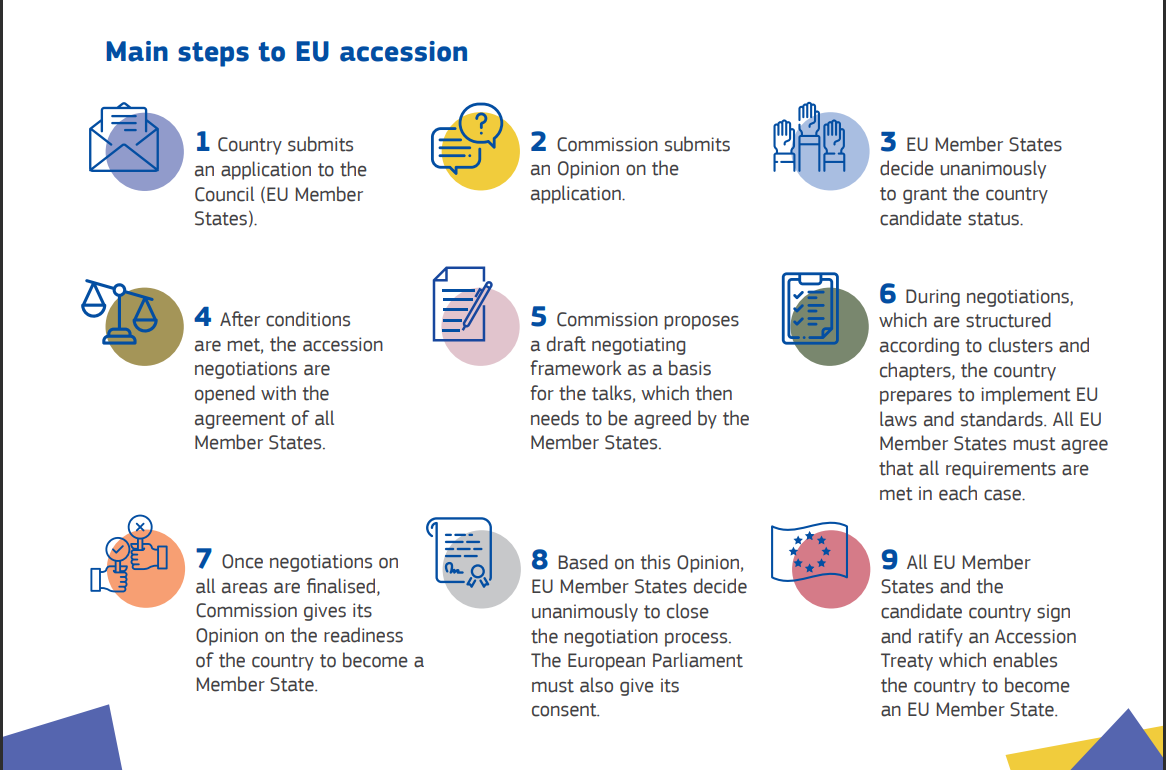This emphasis on democracy could pose a major roadblock for Ukraine’s European path. The country scores poorly in international indexes: Freedom House calls it “partly free” while the Economist describes it as a “hybrid regime”. Reporters Without Borders says oligarchs’ grip on the media is still too “tight”.
After the [Maidan] revolution in Ukraine, the country is certainly on a pro-democratic and pro-European path. However, its democracy is still fragile and the rule of law is still not enforced properly
, says Jana Juzová, a research fellow at EUROPEUM, an independent think-tank focused on European integration.
In terms of democracy, Ukraine is scoring similarly or even worse as the Western Balkan countries. Corruption, functioning and independence of judiciary, and weak democratic institutions are still among the most problematic issues.
Stratulat doubts Ukraine is anywhere “close” to fulfilling the Copenhagen criteria and is seriously concerned about the political risks inherent in a fast-tracked accession procedure, an unheard-of option.
You can have a faster process if there is political will. However, if the process stays as it is now – that is, complex and rigorous –, a faster accession would require all member states to quickly approve all tens of decisions associated with a country
, she says.
This has not been the case in recent years, even for steps that were symbolic, like granting candidate status to an applicant. And there is also the question of how would a fast-track accession for Ukraine be perceived in the Balkan countries, which have been waiting for a long time and have also seen war and risks of Russian influence.
Jorge Liboreiro & Aida Sanchez AlonsoWar is obviously a turbulent time, and the combination with the real-time distribution of Twitter has turned the ongoing fights into a maelstrom of disjointed information and propaganda. I personally am mostly ignoring all breaking reports, unless confirmed by multiple sources or until a couple of days have passed, to allow for a proper assessment.
People all over the Twitter – and more worryingly Ukraine officials – are busy floating wild proposals without any regard for the possible negative consequences as long as it might hurt the Russians somehow. Over the past few days we have seen requests for a no-fly zone over Ukrainian airspace (which would require NATO aircraft to actively engage the Russian air force, effectively a declaration of war), for Russia to be cut off from the global internet (a move with little benefit against Russian forces, which the ICANN since rejected), and for Starlink terminals from Elon Musk (which he promptly delivered, in a minuscule amount relative to the country’s population – except satellite signals could be used by Russians to track and attack their source, so not such a good idea to connect them…).

On this spectrum, joining the European Union is probably the least radical idea – Ukraine certainly has the right to ask to join, as Georgia and Moldova have done over the past days – but the way it was done and how it was reported is wildly misleading. Ukraine’s Minister of Foreign Affairs tweeted that the EU should accept Ukraine as a new full-fledged member of the European Union without delay
, and verified accounts of media organizations reported on this as if it’s imminent and the application is receiving some special treatment, when in reality there is no exceptional admission procedure, the process is long and complex, and the final decision is the responsibility of the EU Council and member states, not the Parliament. It makes me suspect that Ukraine officials either don’t know the steps of the admission process, or they have submitted the candidature as another propaganda item to keep public support for their cause rolling – and I honestly can’t decide which one is worse.
As the article above points out, Ukraine is unfortunately quite far from qualifying. A telling example is Zelensky’s decision last year to freeze the assets of Ukrainian tycoons and politicians by decree instead of working through the justice system. I’m sure the European Union will continue to support the country – as we should – but full membership will have to wait until the economy and political system are closer to being ready for it.
Post a Comment